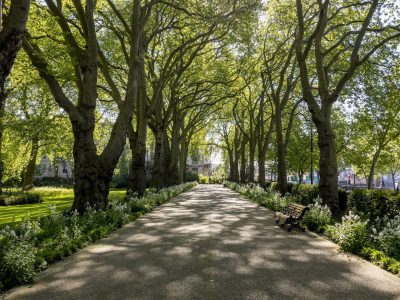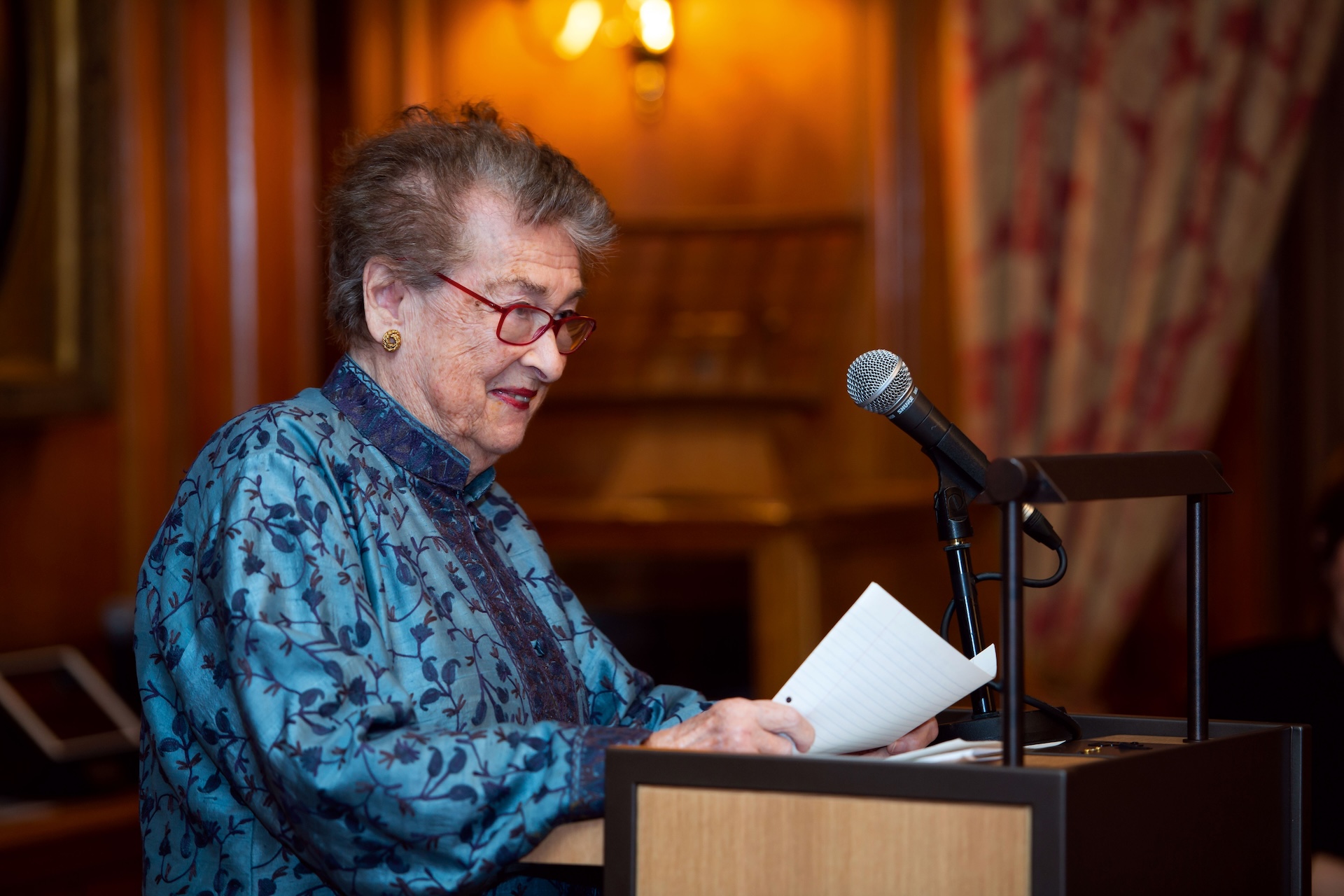

LGBTQ+ Society
On 20 June 2024, the LGBTQ+ Society held its biennial dinner hosted by the Treasurer for members of the Bar LGBTQ+ community and allies in celebration of Pride Month. Master Craig Hassall, President of the LGBTQ+ Society provided a warm welcome to the keynote speaker, The Rt Hon The Lord Smith of Finsbury.
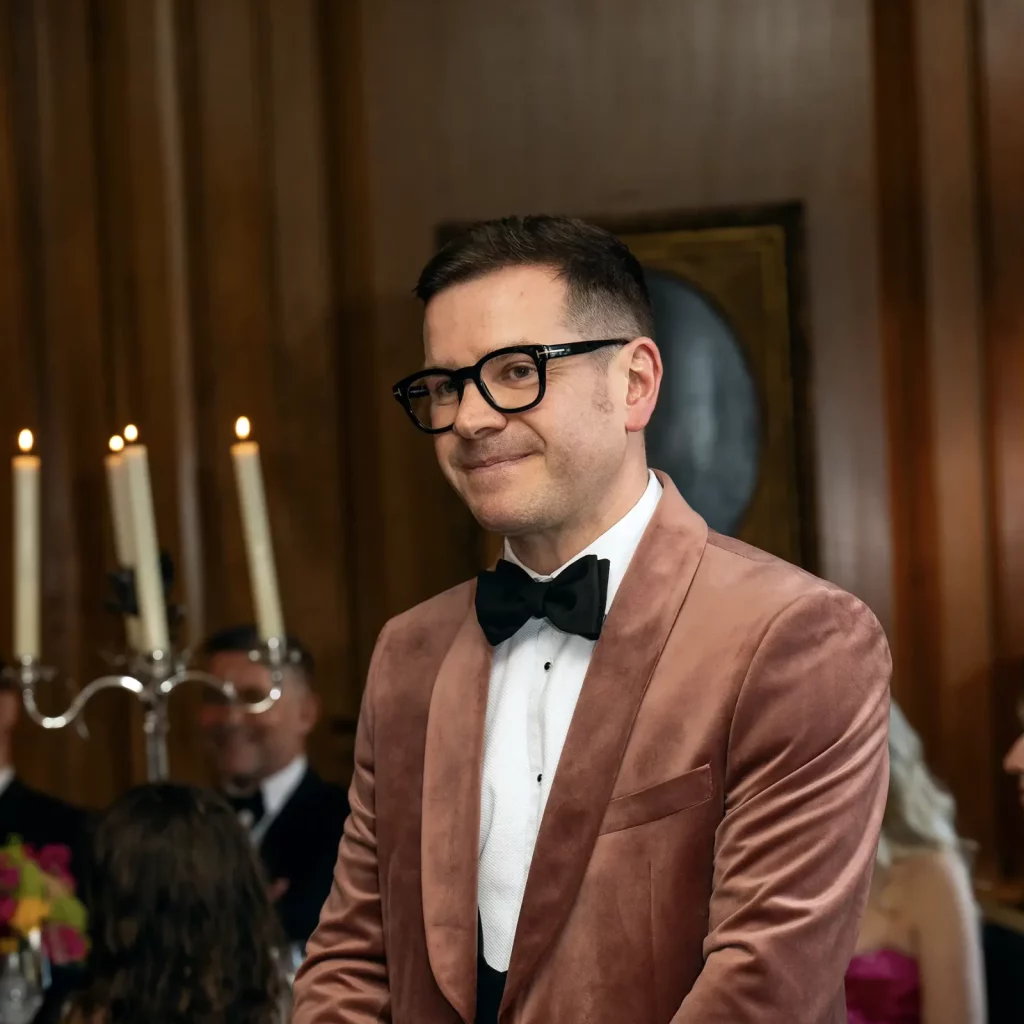
Thank you very much indeed, Craig, the gavel banging here was rather better than at one big dinner I attended in the City of London when the Toastmaster, dressed up like a playing card, banged a gavel. He was supposed to say, “Pray silence for the Right Honourable the Lord Smith of Finsbury” but what he actually said was, “Pray for the silence of the Right Honourable…”
Craig, your introduction was much too generous, but it was rather better than an introduction I had when I was Secretary of State at a big dinner for the television industry. After dinner, when quite a large quantity of wine had been consumed, the chair when introducing me said that my first opening remark had to be that I was the very last member of the Cabinet who could be described as the Secretary of Straight!

But I want to take you back to the days of prehistory in 1984, before virtually everyone in this room was born. I was first elected to Parliament in 1983. I had a wafer thin majority of 363 votes, and I had never made any particular secret of the fact that I was gay. Everyone in my constituency party knew, but the issue had never, ever emerged in public, and I remember my agent during the course of the 1983 election was really worried about what would happen if at a public meeting – these were the days we used to do public meetings – someone leapt up and said, “We don’t want to hear from him, he’s gay”.
And she was all for having a working class member of the party ready to leap up and say, “We’re not interested in that. We want to hear what he has to say about unemployment.”
But I said to her, “No, no. There’s only one possible response, if this emerges in the election campaign, I have to say, ‘Yes, I am. So what? Next question?’” It never arose during the election campaign. I was elected with my majority of 363, and I just decided at some point I needed to say something in public about myself.
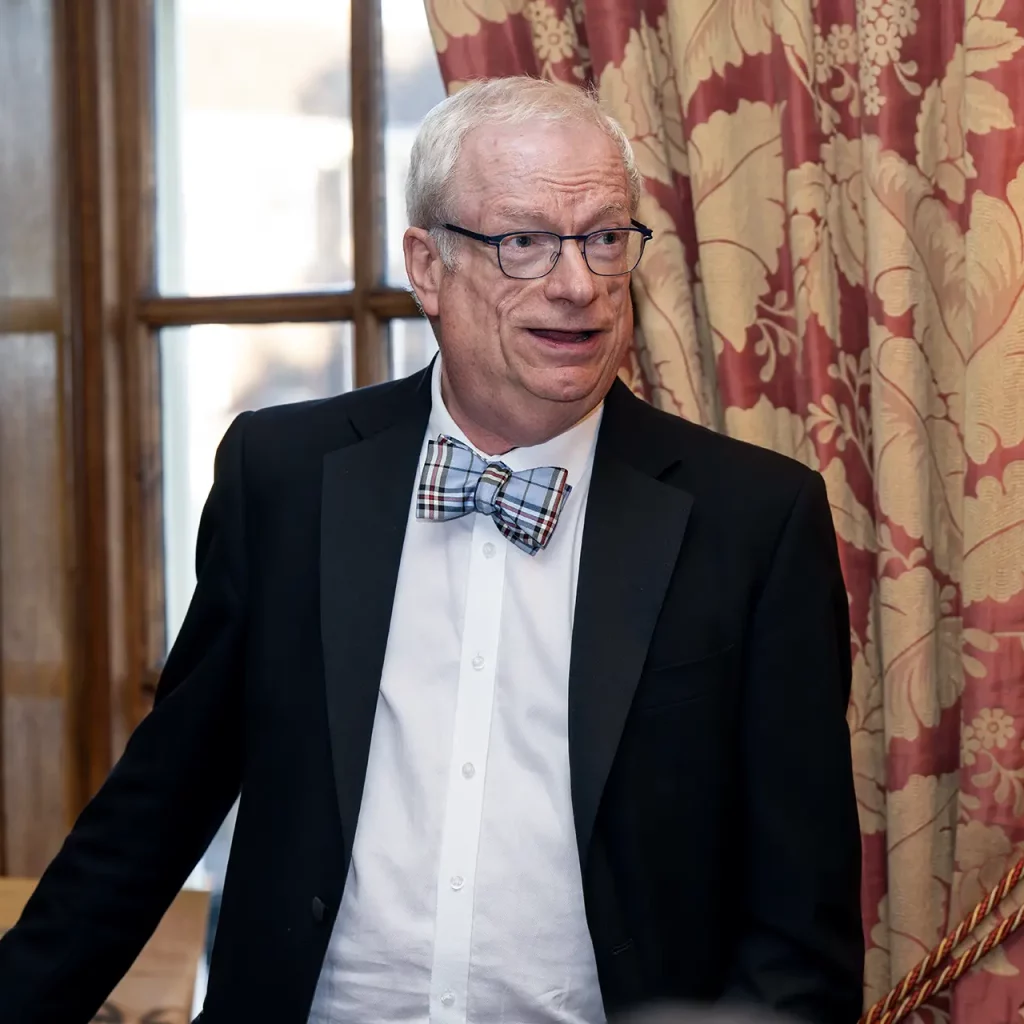
The only question was, when would be the right moment to do it.
Now the city of Rugby had just changed political control, and the incoming leader of Rugby City Council had said he did not want LGBT people coming to work for Rugby Council. He was going to remove ‘sexual orientation’ from the list of things the council would not discriminate against in its employment policy.
There was a lot of antagonism at this, and a lot of protest, and a big rally and march was called on a Saturday lunchtime in Rugby to protest. Because I had said supportive things about LGBT rights at that point, they invited me to come up and speak at the rally.
And I can remember sitting on the train, going up to Rugby, and writing a very, very boring speech. And I got off the train, and I went to the meeting – it had already started, a hall full of 1000 people.
As I walked up through the crowd to take my seat on the platform, I just suddenly decided that this was the place to do it. Because the issue here is about the ability of anyone, no matter what their sexual orientation happens to be, to do an equally good job as anyone else working for Rugby Council. Exactly the same applies to MPs.
The next ten minutes before I got up to speak were amongst the scariest minutes of my life, because no one had ever done this before. But they called on me to speak, and I stood up, and I began my speech by saying, “My name is Chris. I’m the Labour MP for Islington South and Finsbury, and I’m gay.”
At which point the entire audience got to their feet and gave me a standing ovation – it is the only time I’ve ever had one, and only 20 seconds into a speech! I have to say, I have not regretted that moment for a single instant ever since.
Over the course of the succeeding week – you have to remember that this was 1984; no social media, no mobile phones, we were in a prehistoric age – I got letters from people all around the country. And some of the letters said, “Congratulations, well done. Good on you.”
But the letters that probably meant the most were the ones that said, “Thank you for saying what you’ve done. It has made it easier for me.” And if by doing that, and then everything subsequently, helped just one or two people to be proud about themselves and who they are, then it will have been worthwhile.
Roll on a few years, we have furious debates in the House of Commons about what is then called Section 28. Some of you who are old enough will remember Section 28; it labelled gay relationships as ‘pretended family relationships’.
It was a viciously homophobic bit of legislation. We were in the midst of a debate about this in the Commons, and there was a particularly Neanderthal Tory called Nicholas Winterton, who was on his feet making a speech.
And I stood up to intervene. And I made a point. Sat down, and he looked across at me and gestured towards me, and he said: “The House has learned to listen to the Honourable Gentleman”, pointing at me, “With respect when he talks about these matters”. The fact that he felt he had to insert that bit about respect first, showed, I think, that we had made a little bit of progress. Because he was no longer able to talk in windy generalisations about lesbians and gay men because there, sitting in front of him, was one of the people he was talking about.
I think we made quite a lot of social progress over the course of the late 80s, the 90s, into the 2000s, not because public figures came out – I like to think we helped a little bit – but because lots of ordinary people in their family, in their workplace, in their neighbourhood, just found it easier to say, “Yes, I’m one of those” when this issue arose. And people began to realise that we were perfectly normal, ordinary, decent, valuable people that made a huge difference.
Now, come 1997, we were elected into government. I think I’m right in saying, that I was the first openly gay Cabinet Minister anywhere in the world. And the wonderful thing was, no-one noticed! In all the commentaries about the people who were in the new cabinet, who was getting which job, and so on. It wasn’t mentioned. And that was a real sign of progress.
Then of course we were able to equalise the age of consent, and get rid of Section 28, and have equal access to goods and services, and reform the military and the diplomatic service and the civil service, and then bring in civil partnerships.
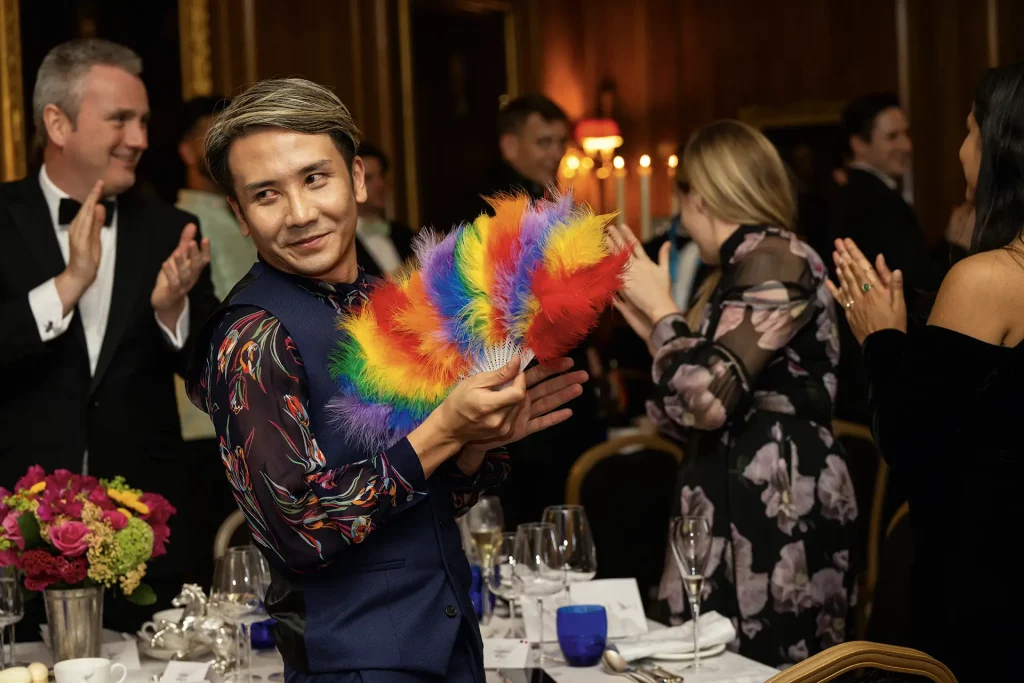
There was a whole raft of legislation that we were able to put through in that period of government. I think it’s fair to say Tony Blair as Prime Minister was a little bit nervous when he was starting this. But when it became very obvious that the public were actually rejoicing at all of this rather than antagonistic to it, it became infinitely easier, and it is now one of the signature things that he talks about that his government achieved.
There is still of course a lot of progress to be made. Even with the T and Q and plus bits of LGBTQ+ we are still some way off achieving real equality and rights. There is still homophobic bullying in schools. There is still discrimination in quite a number of faith schools. We still have not managed to reform the Church of England.
We move along a spectrum. We start with fear of difference, and the prejudice and sometimes hatred that that gives rise to. Then we move to something we might call ‘tolerance’. And then we move to something we might call ‘acceptance’. And then we move to something we might call ‘celebration’.
And there is far too long a delay on banning conversion therapy. But we need to recognise, I think, we have made enormous progress over the course of the 20 or 30 years, here in the UK. I never thought I would have heard that when equal marriage came through, and I give full credit to David Cameron for having forced a reluctant Conservative Party to do it, that the House of Lords voted for equal marriage by a bigger majority than the House of Commons.
But there is a big agenda around the rest of the world to be done. One of the things we do need to remember is, progress is not in the bag. We can never be complacent about what has been achieved, we constantly have to renew the battle to ensure that we sustain the gains that we have made.
I am always thinking things like this: we move along a spectrum. We start with fear of difference, and the prejudice and sometimes hatred that that gives rise to. Then we move to something we might call ‘tolerance’. And then we move to something we might call ‘acceptance’. And then we move to something we might call ‘celebration’.
We are not at ‘celebration’ yet, even here in the UK. I think we are probably, in most places, somewhere around the ‘acceptance’ mark. But getting to a place where we can celebrate difference and the richness it gives to society, and the fulfilment it gives to every single one of us within society, that is the aim we need to try and get to. I’m sure, one of these days, we will. But we must never, ever stop striving to get there. Thank you very much.
The Rt Hon The Lord Smith of Finsbury
Secretary of State for Culture, Media and Sport, 2 May 1997–8 June 2001,
MP for Islington South and Finsbury, 9 June 1983–11 April 2005
